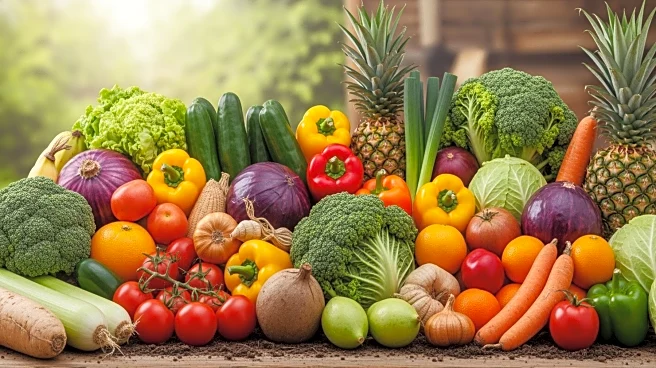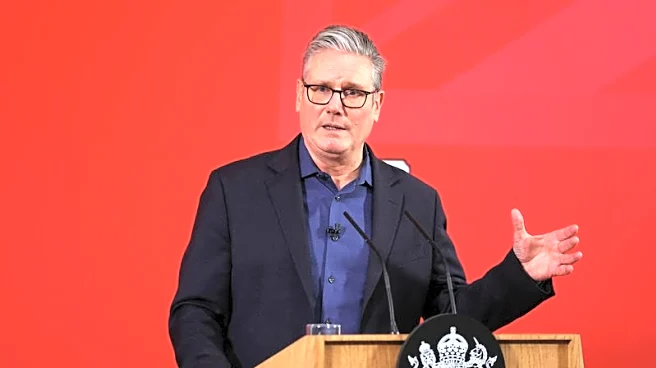What's Happening?
COP30, held in Brazil, presents an opportunity to prioritize smallholder farmers in climate action. Smallholders produce up to 80% of food in developing countries but receive only 0.3% of climate finance. The Belém Declaration on Hunger, Poverty, and
Human-Centered Climate Action aims to empower smallholders to deliver sustainable futures. Inspired by Brazil's Fome Zero strategy, the declaration calls for social protection and investment in sustainable family farming. The Global Agriculture and Food Security Program (GAFSP) has mobilized $2.5 billion to improve food security, demonstrating the potential of integrated investment support.
Why It's Important?
Empowering smallholders is crucial for achieving global food security and addressing climate change. By prioritizing small-scale producers, COP30 can advance multiple development goals, including poverty reduction and environmental protection. Integrated investment support can unlock new markets and improve livelihoods, nutrition, and climate resilience. The focus on smallholders highlights their role in feeding the world and their potential to drive sustainable agriculture.
What's Next?
COP30 leaders are expected to endorse the Belém Declaration, which could lead to increased investment in smallholder farmers. The declaration's vision may translate into concrete actions through global platforms like GAFSP, transforming the lives of millions suffering from hunger and food insecurity. As countries learn from Brazil's success, they may adopt similar strategies to support sustainable agriculture.
Beyond the Headlines
The emphasis on smallholders at COP30 challenges traditional climate finance models and promotes a more inclusive approach to addressing global challenges. By bridging the divide between development and climate finance, the initiative highlights the interconnectedness of food security, poverty reduction, and environmental sustainability.

















